[Anchor]
Importing products that were exported, then exporting them again, and importing them back...
This cycle of manipulating export and import performance is known as 'circular trade.'
With a surge in such fake export attempts aimed at going public, the Customs Service has launched a special crackdown.
Reporter Choi In-young has the details.
[Report]
This is a company that manufactures parts for hydrogen fuel cells.
The Customs Service conducted a search of the company's warehouse.
There are dozens of packaged boxes.
Upon opening them, they were found to be export goods.
Although they were declared as exports in the customs documents, they have returned to the domestic market.
[Customs Service Investigator - Company Employee/Voice Altered: "(The export itself is similar to false sales. You exported overseas but it's here?) They told me to put it here."]
The investigation revealed that after exporting the parts to a Hong Kong company, a paper company established by a close associate of the CEO imported them back from Hong Kong, and this was repeated six times over three years.
In reality, nothing was exported, but the performance was accumulated on paper.
They are suspected of inflating sales by 7 billion won.
[Cho Kwang-seon/Director of Foreign Exchange Investigation, Customs Service: "Even though it was imported from Hong Kong, the products were labeled 'Made in Korea,' which raised suspicions about the origin, leading us to refer the case for investigation."]
The Customs Service believes this was a strategy for listing on the KOSDAQ.
They also confirmed that there were indications of aligning sales figures with those of a competitor that had already gone public.
As a result of the Customs Service investigation, one executive has been arrested, while two others, including the CEO, have been sent for prosecution without detention.
The company has completely denied the investigation results, claiming they are fictional.
They stated that the executive who was arrested acted personally and that there were no issues with the product's performance or the export process.
Fake exports aimed at listing or boosting stock prices amounted to over 900 billion won last year.
This is three times the amount from three years ago, showing a rapid increase.
The Customs Service plans to establish a task force to analyze export and import performance information to crack down on such illegal activities.
This is KBS News, Choi In-young.
Importing products that were exported, then exporting them again, and importing them back...
This cycle of manipulating export and import performance is known as 'circular trade.'
With a surge in such fake export attempts aimed at going public, the Customs Service has launched a special crackdown.
Reporter Choi In-young has the details.
[Report]
This is a company that manufactures parts for hydrogen fuel cells.
The Customs Service conducted a search of the company's warehouse.
There are dozens of packaged boxes.
Upon opening them, they were found to be export goods.
Although they were declared as exports in the customs documents, they have returned to the domestic market.
[Customs Service Investigator - Company Employee/Voice Altered: "(The export itself is similar to false sales. You exported overseas but it's here?) They told me to put it here."]
The investigation revealed that after exporting the parts to a Hong Kong company, a paper company established by a close associate of the CEO imported them back from Hong Kong, and this was repeated six times over three years.
In reality, nothing was exported, but the performance was accumulated on paper.
They are suspected of inflating sales by 7 billion won.
[Cho Kwang-seon/Director of Foreign Exchange Investigation, Customs Service: "Even though it was imported from Hong Kong, the products were labeled 'Made in Korea,' which raised suspicions about the origin, leading us to refer the case for investigation."]
The Customs Service believes this was a strategy for listing on the KOSDAQ.
They also confirmed that there were indications of aligning sales figures with those of a competitor that had already gone public.
As a result of the Customs Service investigation, one executive has been arrested, while two others, including the CEO, have been sent for prosecution without detention.
The company has completely denied the investigation results, claiming they are fictional.
They stated that the executive who was arrested acted personally and that there were no issues with the product's performance or the export process.
Fake exports aimed at listing or boosting stock prices amounted to over 900 billion won last year.
This is three times the amount from three years ago, showing a rapid increase.
The Customs Service plans to establish a task force to analyze export and import performance information to crack down on such illegal activities.
This is KBS News, Choi In-young.
■ 제보하기
▷ 카카오톡 : 'KBS제보' 검색, 채널 추가
▷ 전화 : 02-781-1234, 4444
▷ 이메일 : kbs1234@kbs.co.kr
▷ 유튜브, 네이버, 카카오에서도 KBS뉴스를 구독해주세요!
- Customs targets circular trade
-
- 입력 2025-08-13 04:02:07
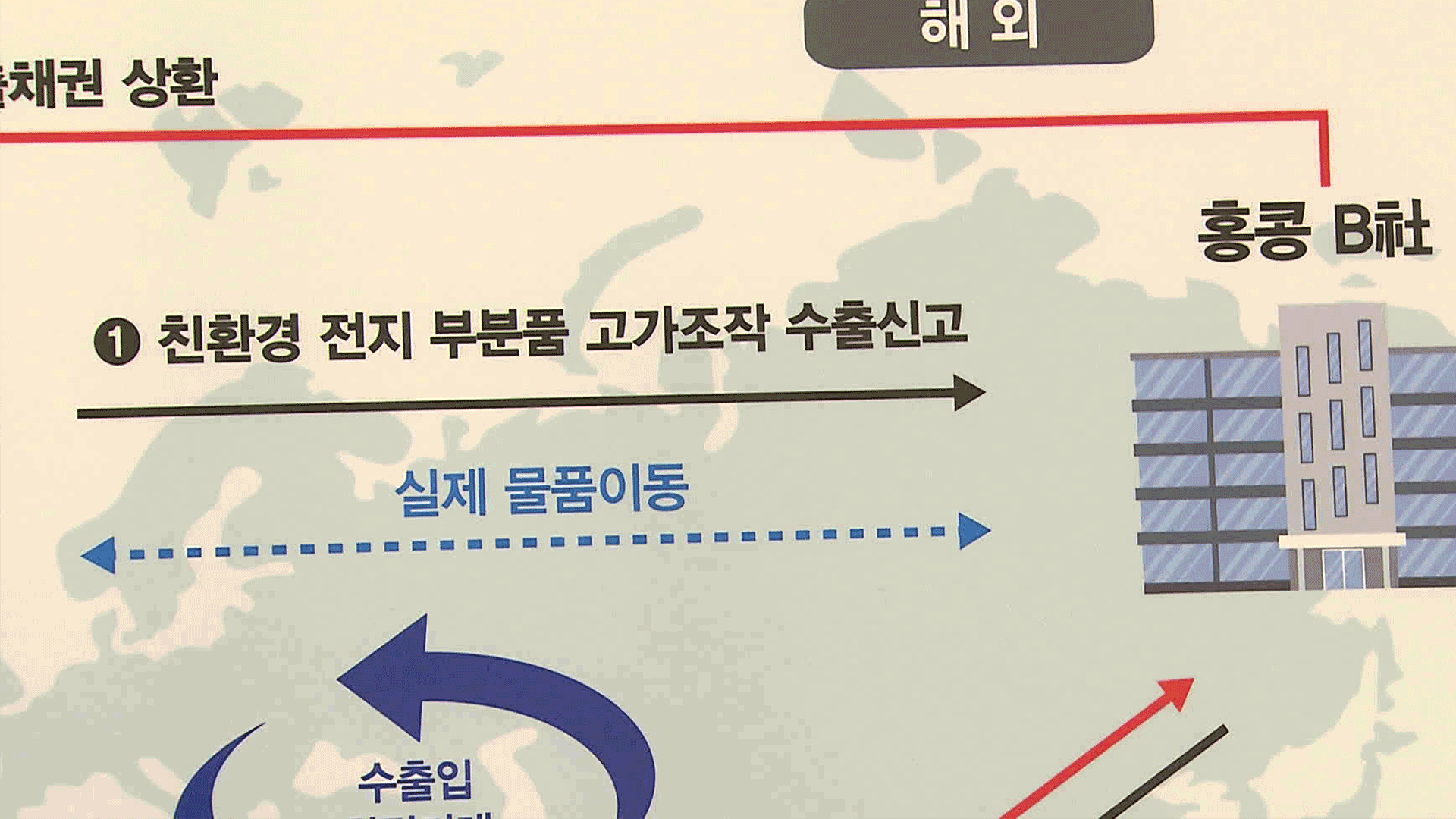
[Anchor]
Importing products that were exported, then exporting them again, and importing them back...
This cycle of manipulating export and import performance is known as 'circular trade.'
With a surge in such fake export attempts aimed at going public, the Customs Service has launched a special crackdown.
Reporter Choi In-young has the details.
[Report]
This is a company that manufactures parts for hydrogen fuel cells.
The Customs Service conducted a search of the company's warehouse.
There are dozens of packaged boxes.
Upon opening them, they were found to be export goods.
Although they were declared as exports in the customs documents, they have returned to the domestic market.
[Customs Service Investigator - Company Employee/Voice Altered: "(The export itself is similar to false sales. You exported overseas but it's here?) They told me to put it here."]
The investigation revealed that after exporting the parts to a Hong Kong company, a paper company established by a close associate of the CEO imported them back from Hong Kong, and this was repeated six times over three years.
In reality, nothing was exported, but the performance was accumulated on paper.
They are suspected of inflating sales by 7 billion won.
[Cho Kwang-seon/Director of Foreign Exchange Investigation, Customs Service: "Even though it was imported from Hong Kong, the products were labeled 'Made in Korea,' which raised suspicions about the origin, leading us to refer the case for investigation."]
The Customs Service believes this was a strategy for listing on the KOSDAQ.
They also confirmed that there were indications of aligning sales figures with those of a competitor that had already gone public.
As a result of the Customs Service investigation, one executive has been arrested, while two others, including the CEO, have been sent for prosecution without detention.
The company has completely denied the investigation results, claiming they are fictional.
They stated that the executive who was arrested acted personally and that there were no issues with the product's performance or the export process.
Fake exports aimed at listing or boosting stock prices amounted to over 900 billion won last year.
This is three times the amount from three years ago, showing a rapid increase.
The Customs Service plans to establish a task force to analyze export and import performance information to crack down on such illegal activities.
This is KBS News, Choi In-young.
Importing products that were exported, then exporting them again, and importing them back...
This cycle of manipulating export and import performance is known as 'circular trade.'
With a surge in such fake export attempts aimed at going public, the Customs Service has launched a special crackdown.
Reporter Choi In-young has the details.
[Report]
This is a company that manufactures parts for hydrogen fuel cells.
The Customs Service conducted a search of the company's warehouse.
There are dozens of packaged boxes.
Upon opening them, they were found to be export goods.
Although they were declared as exports in the customs documents, they have returned to the domestic market.
[Customs Service Investigator - Company Employee/Voice Altered: "(The export itself is similar to false sales. You exported overseas but it's here?) They told me to put it here."]
The investigation revealed that after exporting the parts to a Hong Kong company, a paper company established by a close associate of the CEO imported them back from Hong Kong, and this was repeated six times over three years.
In reality, nothing was exported, but the performance was accumulated on paper.
They are suspected of inflating sales by 7 billion won.
[Cho Kwang-seon/Director of Foreign Exchange Investigation, Customs Service: "Even though it was imported from Hong Kong, the products were labeled 'Made in Korea,' which raised suspicions about the origin, leading us to refer the case for investigation."]
The Customs Service believes this was a strategy for listing on the KOSDAQ.
They also confirmed that there were indications of aligning sales figures with those of a competitor that had already gone public.
As a result of the Customs Service investigation, one executive has been arrested, while two others, including the CEO, have been sent for prosecution without detention.
The company has completely denied the investigation results, claiming they are fictional.
They stated that the executive who was arrested acted personally and that there were no issues with the product's performance or the export process.
Fake exports aimed at listing or boosting stock prices amounted to over 900 billion won last year.
This is three times the amount from three years ago, showing a rapid increase.
The Customs Service plans to establish a task force to analyze export and import performance information to crack down on such illegal activities.
This is KBS News, Choi In-young.
-
-

최인영 기자 inyoung@kbs.co.kr
최인영 기자의 기사 모음
-
이 기사가 좋으셨다면
-
좋아요
0
-
응원해요
0
-
후속 원해요
0










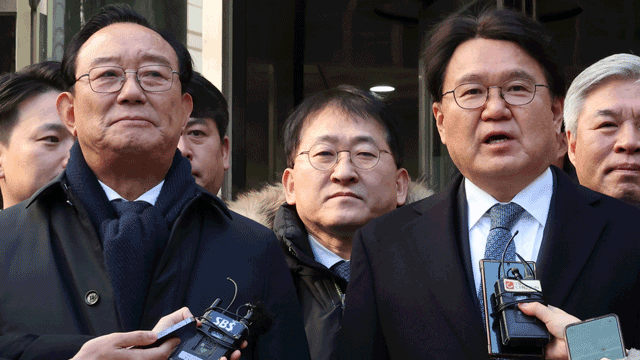
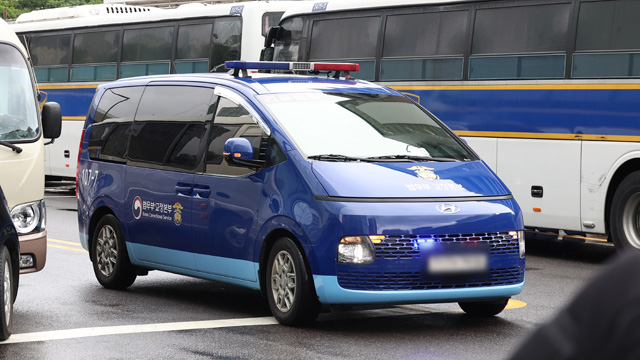
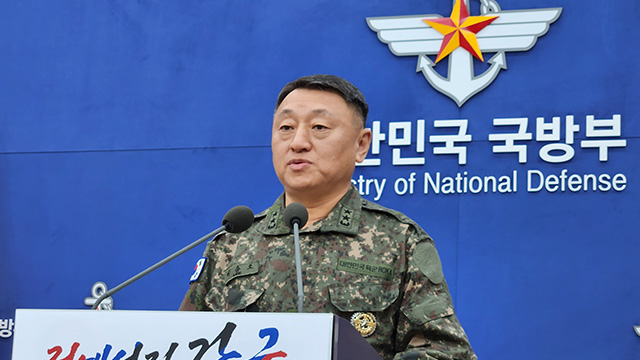
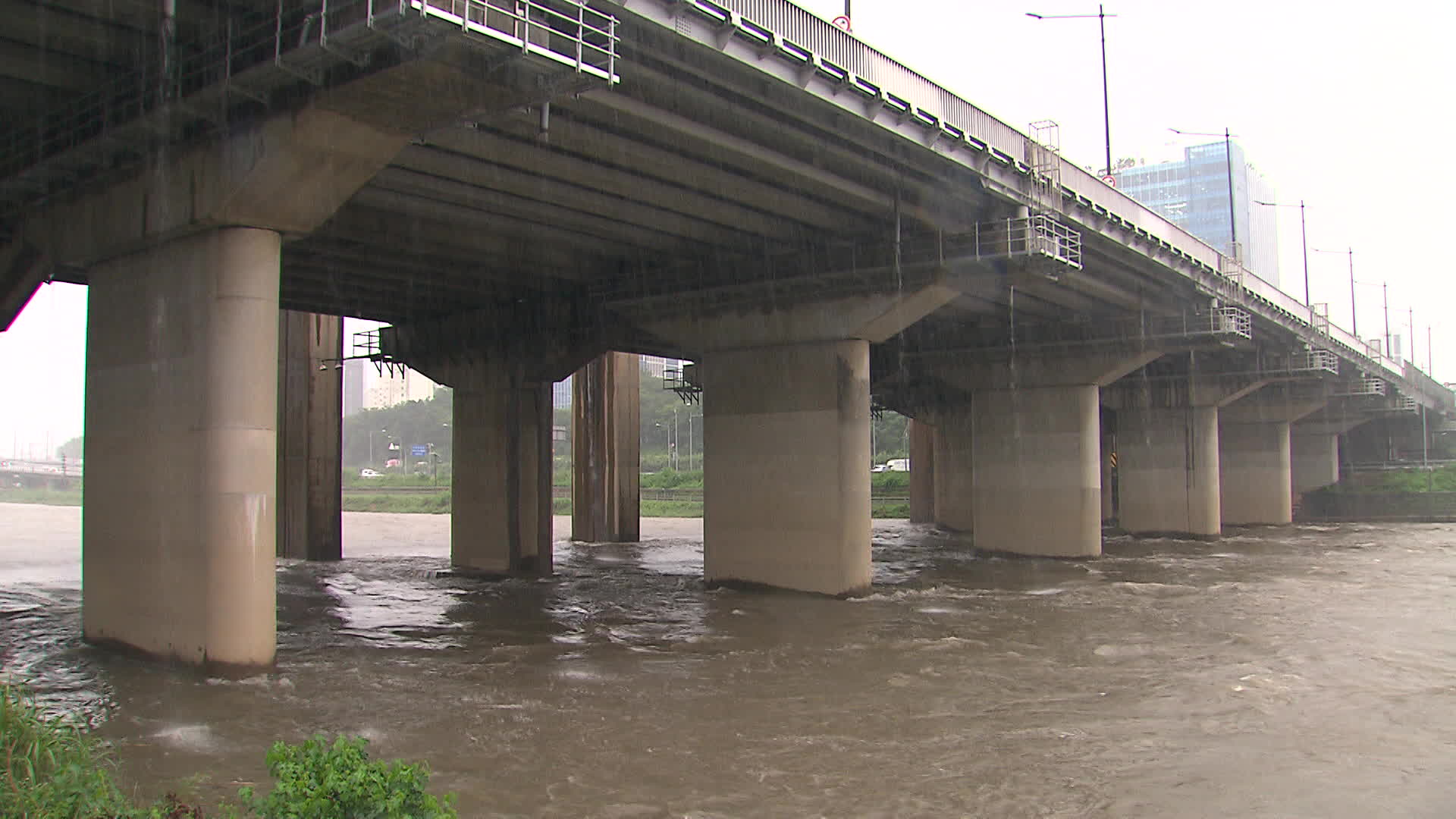

이 기사에 대한 의견을 남겨주세요.